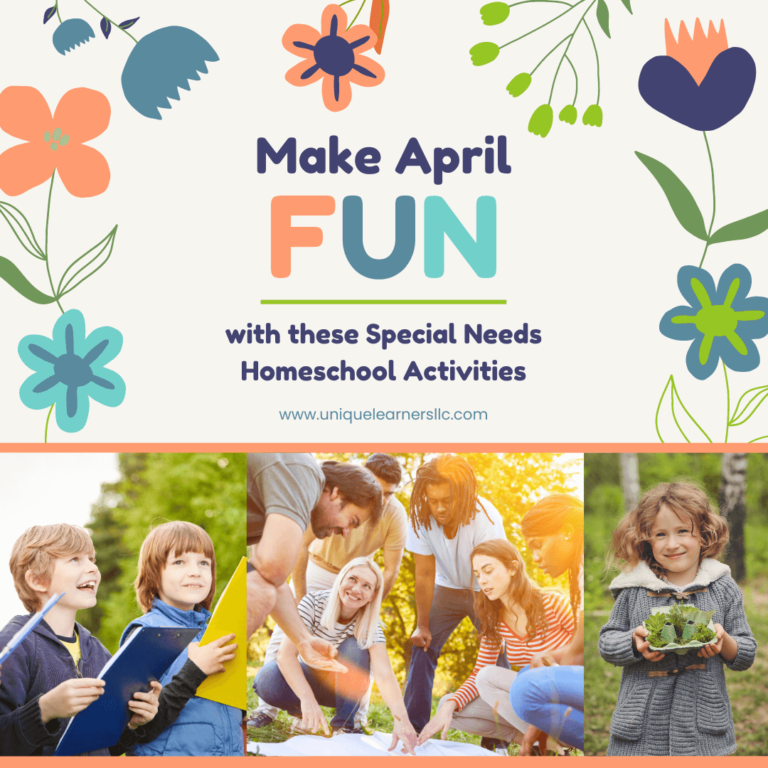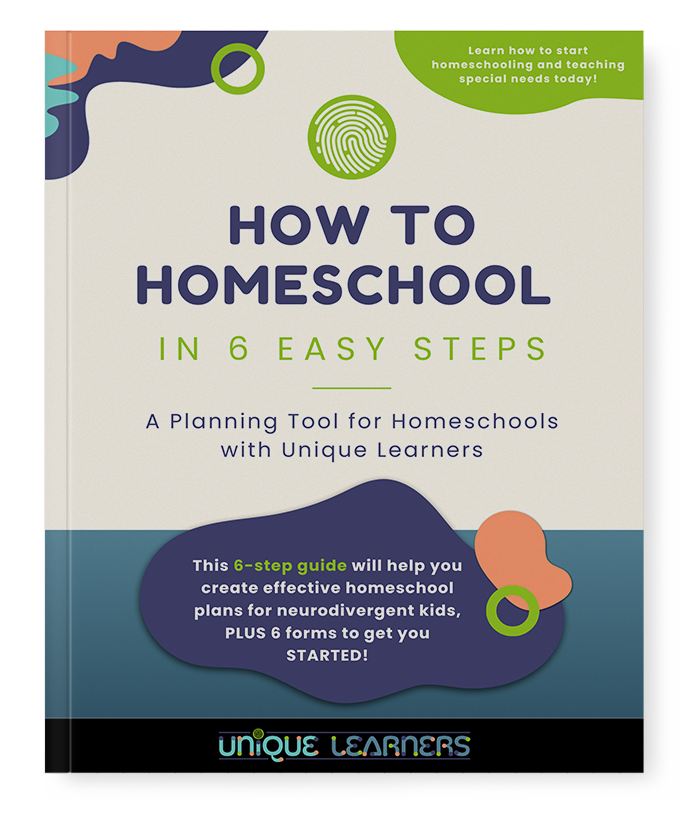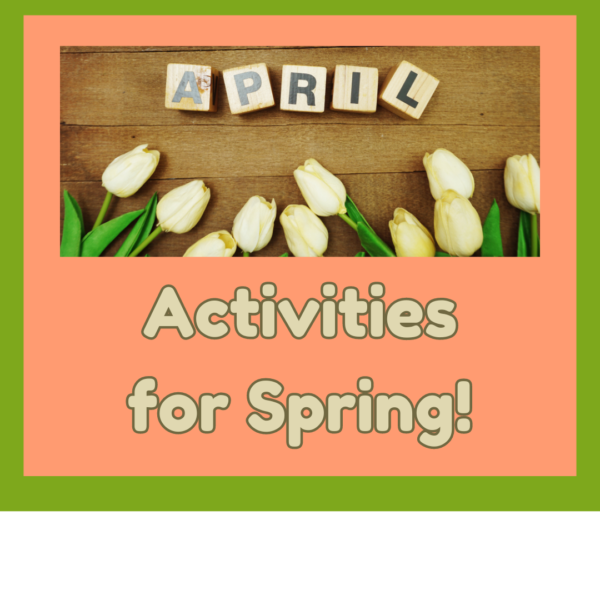
Spring is well underway, and the regular school year is in its last stretch. Keeping the momentum going in a homeschool can be a challenge. If you are getting used to doing multisensory teaching, April can be a wonderful time to incorporate outdoor and hands-on learning fun! Here are some fun special needs homeschool activities to get you started this April.
Nature Walks
April’s mild weather is perfect for exploring nature in your homeschool activities. Set up a nature walk where children can engage their senses.
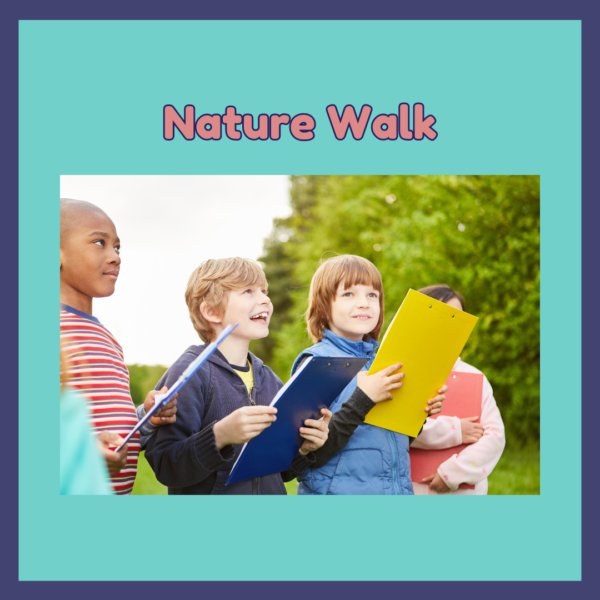
- Touch: Collect various textures like pine cones, leaves, and bark.
- Sight: Have a scavenger hunt for different colors or shapes in nature.
- Sound: Listen for birds, rustling leaves, or flowing water.
- Smell: Visit a garden and identify floral and earthy scents.
- Taste: Try different fruits and rank them from sweet to sour.
Plastic Egg Creations
Although Easter was in March this year, you can do fun activities into April with all those left-over plastic eggs. Some of the activities are great for all kids, but hands-on learning sensory activities are especially effective for unique learners.

- Touch: Fill eggs with small toys that have various textures. Have your child name the texture by how it feels. Or have your child practice counting change placed in plastic eggs.
- Sight: Write two-syllable words or a math fact and answer on the two halves of plastic eggs. Have the children put the eggs together to form a word or match the problem to the answer. For younger kids, you can write a number symbol on one half and dots for the value on the other half. Or capital and lowercase letters for matching.
- Sound: Have the kids help you fill eggs with rice, lentils, sand, tiny dice, or other items. Duct tape the connection seam to keep the egg together. You can shake the eggs to guess what is in each one. Use the eggs as percussion instruments and shake them with music to practice keeping the beat.
- Smell: Take cotton balls and dip each one in a different smelly item. Suggestions: perfume, shampoo, vanilla extract, almond extract, essential oils, etc. Be sure that what you dip the cotton ball in will not rot (such as milk) or is something the child is allergic to (such as peanut butter). Duct tape the connection seam to keep the egg together. Plastic eggs have small holes in the ends. Have the children smell each egg and guess what the smell is. You could have them write the words as a science record or spelling activity.
- Taste: Fill the eggs with 1 or 2 jelly beans or M&Ms. Place the eggs in a basket or bowl. When the kids get their assignments done for the day, allow them to select an egg as a reward.
Planting a Starter Garden
Being outdoors to plant and tend to a garden, teaches so many skills for kids through hands-on learning. Choose easy-to-grow plants or flowers. Have the kids help work right alongside of you. You could even give each child their own garden box or section.
Creating a small sensory garden at home can be especially rewarding and calming for children with special needs. Start simple! If you need ideas, click here for ways to create a sensory garden in your own backyard.
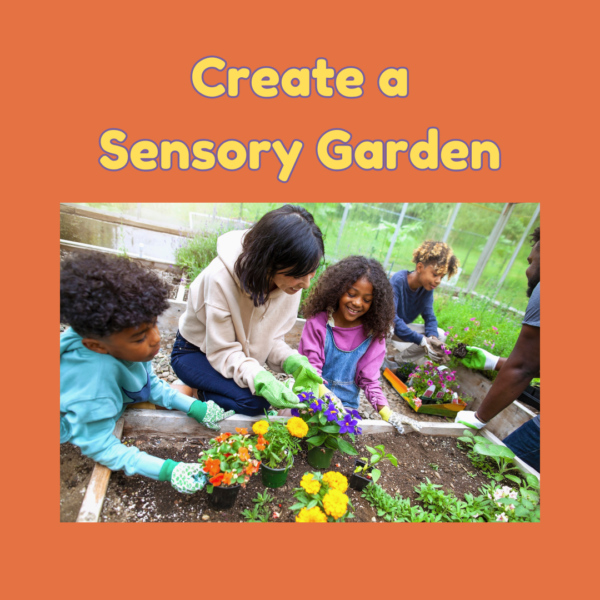
- Use raised beds or container gardens.
- Pair soil with tactile tools for a hands-on experience. Study different types of soil. Experiment with plants in various types of soil.
- Make garden plant labels using wide craft sticks or crafting stakes. Paint or draw with sharpie markers to decorate the labels with words or pictures.
- If space is limited, start an indoor herb garden.
Start a Worm Farm or Compost Bin
Composting can yield rich gardening soil. Worm Farms can allow kids with an entrepreneurial bend to have a small business. A worm farm can even be combined with composting!
Arts and Crafts Homeschool Activities

Our monthly activities calendar has lots of ideas for crafts, science activities, and other hands-on activities! It’s free for the month of April 2024. Here are even more art and craft projects that fit the season!
- Homemade Bird Feeders: Use pine cones, peanut butter, and bird seeds as a sensory activity and a way to connect with nature. When you place the bird feeders outside, use binoculars to monitor what types of birds come around.
- Bird Houses: Build or pain bird houses. Hang them in a place to attract birds. If possible, keep track of what types of birds arrive.
- Weather Crafts: Make rain gauges or wind chimes and use them as learning tools.
- Kites: Color small kites as a decoration for your home or windows. You can also design and build full-size kites and take them out to fly them on a windy day.
Cooking Projects Homeschool Activities
Cooking involves hands-on learning of practical life skills, especially for teens with special learning needs.
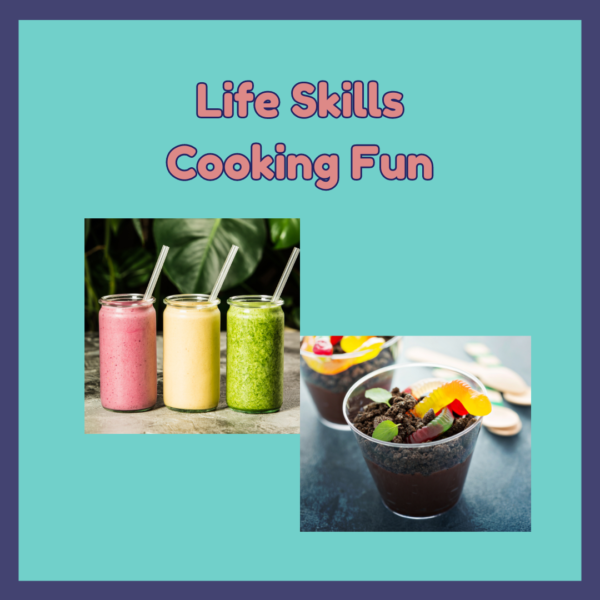
- Cookies: Create cookies in fun shapes and decorate with pastel colors.
- Smoothies: Make fruit smoothies with frozen fruits, yogurt, milk, a bit of sugar, and vanilla or almond extract.
- Dirt Cups: Make a fun dessert with chocolate pudding topped with ground Oreo cookies in a small plastic cup. Poke and drape gummy worms in the “dirt.”
Story Time with a Twist
Incorporate interactive story times with books that engage hands-on learning of various senses:
- Write a cooperative story by having one person start with a character, the next person adds the time, and the next person adds the place. Continue taking turns creating a story where each person adds one sentence until everyone has had at least one turn and the story is completed.
- Read books with sound buttons or different voices for auditory engagement.
- For visual interest, use pop-up books or high-contrast images.
- For older students, show them how to create their own pop-up images. Have them write a story with a pop-up picture on each page.
- Use Story Cubes to have each child create and write a story.
Fitness Fun Homeschool Activities
Hands-on learning through Physical activity is crucial for all children. Organize:
- Dance: Have dance parties with music tailored to your child’s preferences and needs. Spring is a great time to learn to hula dance!
- Go on a Family Bike Ride: Pick a day each week to go on a family bike ride. Explore different areas of your community.
Play Board Games
A final way to keep your kids motivated in the spring is to play learning folder games. We have tons of folder games in our Unique Learners store for phonics, vocabulary (morphology), and math facts. Folder games are easy to store. Our games are not independent activities, but “real” games that take about 15 minutes. Every game is designed to be a fun and positive way to practice or review skills for reading, spelling, or math. If you don’t find a skill that you are working on or a theme that appeals to your child, let us know. We will be happy to create a folder game that fits your needs!
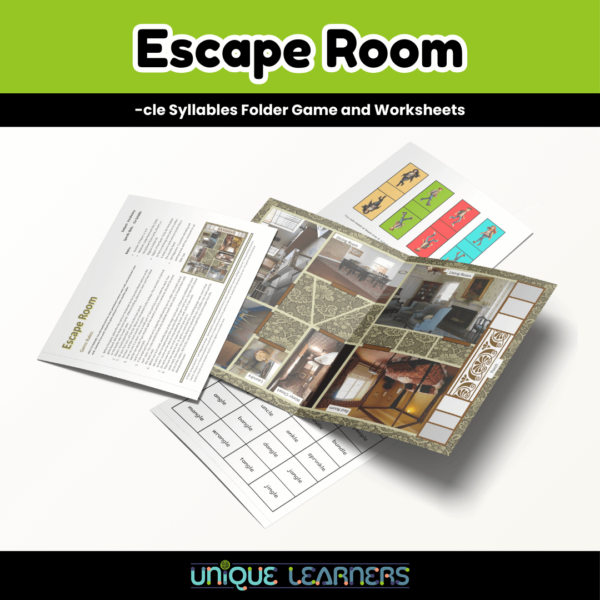
Remember, the key to planning April homeschool activities for your special needs is to tailor them to your child’s interests and abilities, ensuring they are accessible, inclusive, and most importantly, enjoyable. Celebrate the joy of learning and the beauty of spring this April with hands-on learning homeschool activities that foster growth, creativity, and bonding.
